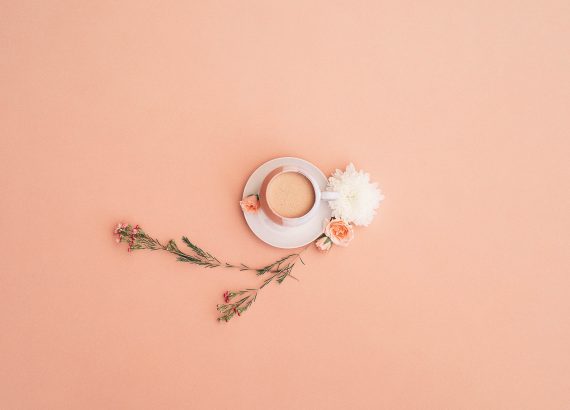Oga Ejike, Where is my Kolanut?

Dear God,
Please, before You go off settling wars and pestilences, spare me two minutes. I want to discuss one very important case with You. It is a matter of the kolanut, cultural heartbreak, and gender bias all wrapped up with garden egg and groundnut. Yes oh, I’m talking about what happened in Owerri. Yes, Owerri again!
You see, my Igbo people—they are sweet, intelligent, hardworking, and very welcoming—but when it comes to matters of women and tradition, e get as e dey be. The same people who fly first class around the world, come back and revert to 1832 tradition in the village. I can’t shout.
Okay, Dad, stop rolling your eyes, let me gist You.
Last week, we travelled for a burial ceremony in Owerri. Oga Ejike—yes, that tested and trusted gentleman—was laying his mother-in-law to rest. A very dignified affair. The kind of burial that had matching Asoebi, full-field-canopy styles, dancing groups, and drones flying overhead like it was CIA monitoring. The event started on time and ended on time! I almost fainted. In Africa, such events starting and ending on time is a miracle bigger than parting the Red Sea.
Now, after the dust of the burial settled and the last cooler of jollof rice was empty, Oga Ejike hosted us—his Lagos clique—inside his family house. See fine compound! Knights and Ladies of Saint Mulumba were there. People were drinking palm wine as if Jesus Himself did another miracle and turned the water in the clay pots into wine.
Then came the kola nut ceremony.
Now, just for reasons of clarity, this is a very big deal in Igbo land. Before anything starts, before you even scratch your throat to say a word to your guests, kolanut must be presented, blessed, and shared. It’s like our own handshake with the ancestors.
So, the plate of kola nut—arranged with garden eggs and groundnut like bride price—is brought out. Oga Ejike hands it to the eldest man in our midst, a fellow Knight, who then starts the sacred rotation. Each man receives the plate, blesses it, and passes it to the next. I was the only woman in their midst.
And then… it got to me.
Ah! My time had come. I sat up straight in anticipation and stretched my hand with pride. I was ready to release apostolic blessings with the kolanut. I had travelled all the way from Lagos to honour the family. I deserved to receive and bless that kola nut.
But what happened?
Gbam! Voices rose like the protestant church against the Catholics.
“You don’t give the plate of kola nut to a woman!” (they cautioned Edy as he stretched his hand to give me the plate)
See me see tradition! What did I do? Why wont I collect the plate of kolanuts? Is it not the same God that created the men that created me too?
I laughed at first, thinking they were joking. Me, a respected professor, a wife, mother of four, and doctoral fellow of four chartered institutes in Africa? You people are now telling me that my hand is not holy enough to receive kola nut?
Dad, I stood up for my right oh. I said, “Please explain this to me. I am a guest like all of you. I am older than some of you men here. I am not carrying juju in my handbag. Why can’t I bless the kola nut?”
They all started laughing and muttering, “It is tradition.”
Tradition kwa? Which one? The same tradition that allows the men to remarry few months after their wife dies but would not allow the women to do the same. That tradition? The same tradition that scraps the women’s head to “gorimakpa” (baldness) when they lose their husbands but allow the men glide around with their pretty boy’s look, under the same condition?
You know what they say: “If the tradition does not allow the goat to drink water, and the goat is thirsty, the goat could break the pot.” I almost broke the pot that day.
To add pepper to my cultural injury, the same plate that skipped me landed on my very young male colleague (who was from the Yoruba tribe). They gave him a full kola nut to take home as evidence of his blessed reception in Owerri. Father Lord!
That’s how I sat there, culturally disconnected and spoiling for a fight.
Dear Lord, can I ask a few questions?
What did women do to kolanut in Igbo land? If we bless the kola nut, will it refuse to germinate? Will ancestral spirits throw tantrums in their graves? Or will the men who eat it suddenly grow boils in awkward places?
Hear me out, Lord, this cultural shenanigan is not limited to kola nuts. In my village in Anambra, the only thing you will hear is: Women cannot do this and that! If a woman doesn’t have sons? Aaaah! She’s on her own. And you see women do some unspeakable things just to have a male child because as the saying goes: “When a chicken dies without a cock crowing, nobody hears the news.” (You know what I mean, right?)
And don’t get me started on land inheritance. A girl can be born and raised in a compound, cook there, sweep there, plant yam there, and when her father dies, they tell her, “Nne, you cannot inherit anything because you will marry out and won’t belong here anymore.” Belong where? When a man dies without a male heir, his relations dive his properties like starved wolves that just made a kill (despite the number of female children in that family) while his wife and daughters watch helplessly.
I once asked my uncle why a woman can’t be the village chief. He looked at me like I desecrated in the council hall. He said, “Women don’t have the chest to carry such title.”
But let me ask, who carried pregnancy for nine months? Who laboured for twelve hours while men were outside drinking palm wine? If a woman’s chest is not strong to carry the title, then we can very well say that the thunder from Umuahia is just a trumpet’s sound.
Yet, the women keep moving. They are doctors, lawyers, traders, teachers, mothers, builders. They raise amazing men and women (Dad, “men” for emphasis). Today, the women run the home, run the market. They fund the church and build the communities. But when it’s time to bless the kola nut, you say she is not qualified? When it’s time to take a village title, you say she cannot chest it? The same men raised by women turn around to dictate what the women can or can’t do …funny, right?)
Things are changing, and things will continue to change. So, let the men keep blessing their kola nut alone. But I promise you, Lord, one day the women will break their own kola nut. In fact, we’ll bless it, eat it, and still export the seed to China.
You are laughing? Hmmm.
Now back to Oga Ejike.
My responsible, kind and generous Oga Ejike, who studied in the UK, who is wise and very intelligent and quotes scripture like Apostle Paul, still followed this tradition like it was Moses’ Ten Commandments. I called him out with utmost respect and said politely. “Oga Ejie, you’re a man of the world, a Knight of the church. You mean you couldn’t insist they make room for this small gender inclusion?”
He laughed heartily and said, “I understand your point of view, my dear, HOWEVER, It’s our tradition.”
Tradition, Tradition, Tradition! (how many times did I call you?)
Dad, please stop laughing. This is not fair. Are you supporting them? You should be on my side on this matter. How would Oga Ejike pay for this kolanut injustice if you keep laughing at my painful experience?
I told him that until he presents that kola nut to me properly, I will keep visiting his house unannounced. If he likes, let him hide the nuts. I will search every corner. I will even question his dog. I know Lady (Aunty) Uche will support me.
Let the tradition evolve. Let the kola nut not fear a woman’s blessing. In fact, let the ancestors know that the same way we now use microwave to warm fufu, is the same way women will start blessing kola nut. Life must move forward!
My daughter says one day, women will create their own tradition. I say, “Why not?” We will gather under the mango tree, wear our own title beads, bless our own kolanuts, and create a tradition that includes everyone.
After all, “when the palm wine tapper falls from the tree, the wine does not stop flowing.” So even if men don’t include us, we will still make our own table. With pepper soup and pride.
As for me, I’m still beefing Oga Ejike. But I love that gentleman, sha. He served us correct “Ugba”, (Dad, you don’t understand, for the “ugba” alone, I can go to Owerri 20x a month) plenty chickens and cold palmy that day. Oga Ejike is a good man, HOWEVER, he has to change the strange kolanut ideologies and support the women. And I’ll keep going to his house until I collect my rightful kola nut.
This is your daughter Lord, the future kolanut priestess, defender of all the women that have been denied the bles
sing of the kolanut and I am checking in.




Nkechi Onyenokporo
I have laughed so hard my sides ached.
I totally support your stance on women not giving full rights at this age and time.
I will fight this battle of not giving you, A WHOLE YOU!! Kolanut???
Such a beautiful read by the way. We should really collaborate in creating a woman empowering film. Like Lion Heart.
Val Nwabueze
Until the woman understands and appreciates the sacredness of her being, she will never stop distracting herself with what ……….
That which inhibits a woman from breaking kolanut traditionally lies within her womanhood and nature who created it, respects and elevates it. Every woman should celebrate it and stop focusing on what men use to catch up with feeling sacred.